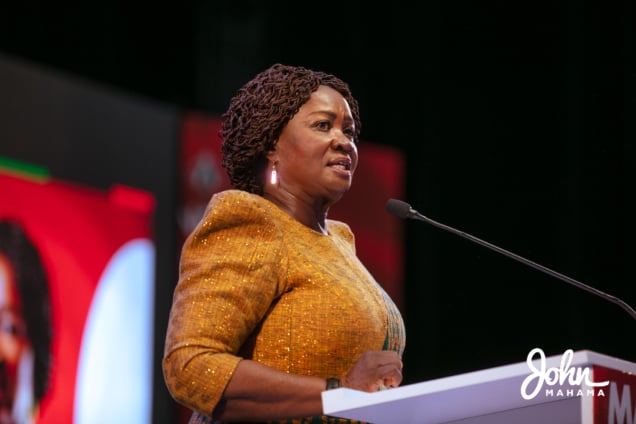In recent discussions regarding Ghana’s environmental challenges, Prof. Jane Naana Opoku-Agyemang, the running mate for the opposition National Democratic Congress (NDC), has articulated profound concerns surrounding the pressing issues of illegal mining and deforestation. During an interview with Radio 1 Morning Show, she lamented the degradation of the country’s water bodies and lands, which she believes poses a severe threat to agriculture, particularly the cocoa production sector that is integral to Ghana’s economy. Opoku-Agyemang described the ongoing environmental destruction as not merely an ecological crisis, but a significant economic concern, given that cocoa is a key pillar of the nation’s livelihood and export earnings. Her remarks highlight the intersection between environmental health and agricultural productivity, underscoring how the former is crucial for sustaining the latter.
Urgent action is needed, according to Opoku-Agyemang, who is increasingly worried about the future of Ghana’s water resources and agricultural landscapes. She emphasized the detrimental impact of illegal mining, colloquially known as ‘galamsey,’ which has gained notoriety for its destructive influence on rivers and farmlands. The interview showcased her commitment to addressing these environmental issues, making it clear that the next NDC government, if elected, would prioritize restoring the environment to combat the adverse effects of illegal mining and other harmful agricultural practices. Opoku-Agyemang’s concerns resonate with a broader conversation in Ghana about the necessary balance between economic development and environmental preservation.
The impact of illegal mining activities on the cocoa industry and local communities cannot be overstated. Opoku-Agyemang pointed out that the degradation of natural resources directly undermines the productivity of cocoa farmers, subsequently threatening livelihoods and perpetuating cycles of poverty in rural areas. The cocoa sector is not only vital for the country’s economy but also deeply embedded in the cultural and social fabric of Ghanaian society. The NDC’s commitment to addressing these issues reflects a recognition of the critical need for sustainable development practices that support both ecological integrity and agricultural success.
To tackle these challenges, Prof. Opoku-Agyemang has called for a comprehensive strategy aimed at environmental restoration. She is an advocate for implementing sustainable mining practices and enhancing regulatory frameworks that can effectively control illegal mining operations without compromising legitimate livelihoods. The focus on restoring water bodies and land reflects a broader vision for a more sustainable future where natural resources are managed responsibly. Such initiatives, she argues, would not only benefit cocoa farmers but also ensure that future generations inherit a healthier environment.
Additionally, her statements come at a crucial time when public dissatisfaction regarding the government’s handling of illegal mining and environmental degradation is rising. Citizens and stakeholders are increasingly vocal about the need for immediate remediation efforts and more effective policy interventions. The NDC’s engagement with this issue may appeal to voters who prioritize environmental conservation and sustainable agricultural practices in the upcoming elections. The opposition party’s emphasis on environmental rehabilitation could differentiate them from the incumbent government, potentially galvanizing support from the electorate who are concerned about these vital issues.
In conclusion, Prof. Jane Naana Opoku-Agyemang’s urgent appeals for action against illegal mining and environmental degradation not only reflect a commitment to ecological concerns but also highlight the critical intersection of these issues with Ghana’s agricultural economy. Her vision for a restored environment and sustainable practices aims to secure the future of cocoa production and the well-being of rural communities. As the nation grapples with these pressing challenges, the upcoming electoral discourse will likely revolve around environmental stewardship and the strategies proposed to safeguard Ghana’s natural resources for future generations.














